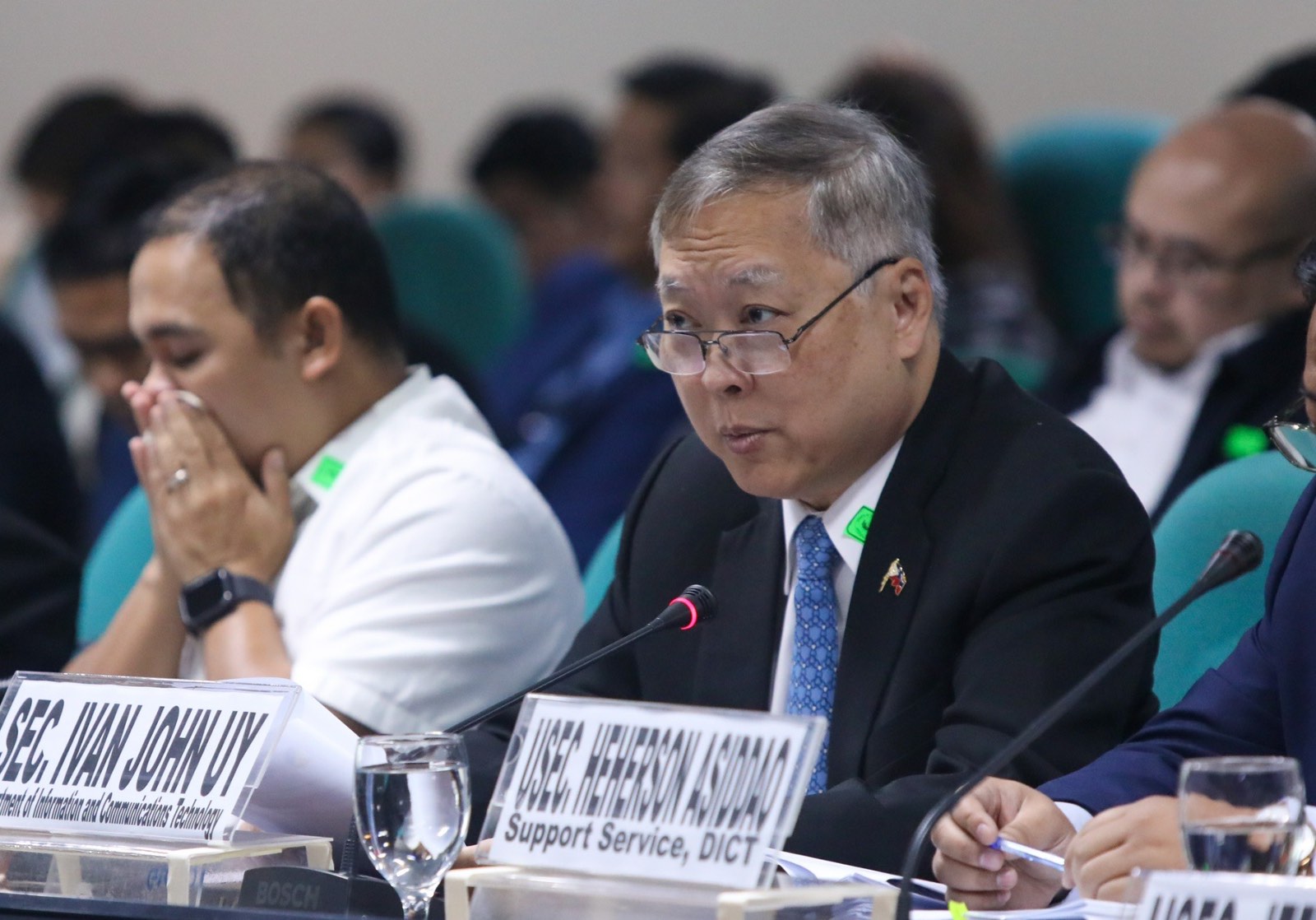'Live selfies' now mandated under SIM Registration Act—NTC, DICT tells Senate panel
Mobile phone users would now be required to take a “live selfie” before their SIM registration application is approved.

Department of Information and Communications Technology (DICT) Sec. Ivan John Uy presents the agency's proposed 2024 budget before a Senate Finance Subcommittee hearing on Tuesday, Sept.19, 2023. Under the 2024 National Expenditure Program (NEP), the DICT and its attached agencies—Cybercrime Investigation and Coordination Center (CICC), National Privacy Commission (NPC) and the National Telecommunications Commission (NTC)—were allocated a total of P8.7 billion. (Senate PRIB Photo)
The National Telecommunications Commission (NTC) and the Department of Information and Communications Technology (DICT) disclosed this during the Senate finance subcommittee’s hearing on the proposed P8.7-billion budget of the DICT for 2024, on Tuesday, September 19.
According to the NTC, a memorandum order has been issued obligating telecommunication companies (telcos) to include live selfies as a requirement in the SIM registration.
Based on the memorandum order, stock photos would no longer be allowed as a requirement for the registration.
The NTC will also start a flagging system where telcos would be required to report individuals who will be registering more than five (5) SIMs and businesses or juridical entities that would be registering more than 100 SIMs.
Mobile users whose information on the registration did not match the information on his identification document will also face a possibility of immediate barring or temporary deactivation of account.
At the same time, the DICT is building up its electronic Know Your Customer (e-KYC) database, which the agency started to launch five months ago.
“The EKYC will solve (the problems) of the SIM registration…kahit mag pretend ka dun, or unggoy ang ilagay or kung anong mukha, pero pag hindi talaga ikaw yung may ari (even if you pretend or whatever picture you input, but if you are not really the owner), they would know,” said DICT Undersecretary for eGovernment David L. Almirol, Jr.
Almirol said they are now in the process of reviewing the implementing rules and regulations (IRR) of the SIM Registration Act to integrate the eKYC policy.
“This eKYC developed by the DICT, it will solve not only the SIM registration. One time, big time solution po ito. Even fake diploma, fake drivers’ license, if you put your first, last name, middle name, and you make a live selfie and you pretended to be another person, the machine will not work,” Almirol said.
He further said the artificial intelligence (AI) machine is “very much capable” of identifying fraud activities.
According to Almirol, the reason why there is phishing, vishing, smishing attacks in the Philippines is due to the loopholes in the registration process.
“But if we are going to fix the registration process at the outset, registration on social media, on LTO, drivers license, postal ID or barangay clearance, the EKYC is a one time big time solution because this is already integrated to the 90 million data that the PSA (Philippine Statistics Authority) worked hard to create, “ the official said.
DICT Undersecretary for ICT Industry Development Jocelle Batapa-Sigue also confirmed before the panel chaired by Sen. Grace Poe that telcos would be required to strictly adhere to the memorandum order.
“The memorandum order was issued after consultation with these agencies and the stakeholder so they also will provide their inputs on how to address this issue,” Batapa-Sigue said.
“We issued the memorandum yesterday,” she also said.
Senators earlier expressed alarm over the National Bureau of Investigation's (NBI) disclosure that many of those who registered their SIMs submitted photos of "monkeys" or other animals and some featured anime.
Lawmakers lamented that despite the enactment into law of the SIM Registration Act, the proliferation of text scams and online fraudulent activities remain.